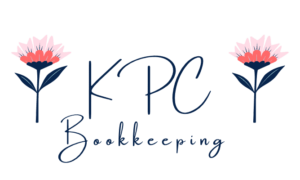As the tax season looms, I know you’re probably starting to stress. Maybe you haven’t touched your books all year, or maybe you’ve been keeping up, but you’re not sure if you’ve done it right. The labyrinth of tax intricacies isn’t my main focus, so we won’t delve into the technicalities of tax filing in this post, since each individual’s circumstances differ. Instead, I’ll share some insights to make your tax preparation journey a little smoother this year.
1. Get Professional Assistance
Consider tapping into professional expertise by enlisting the services of a Certified Public Accountant (CPA). While you’ll play a role in gathering necessary documents with my assistance, having a CPA ensures adherence to intricate tax laws and offers a valuable second set of eyes to review our work. There are no legal requirements for a tax preparer, but I recommend a CPA because they have more stringent regulations and continuing education requirements, so they’re always current and can keep you compliant, while maximizing your refund!
2. Harness the Power of Good Bookkeeping for a Stress-Free Tax Season
If you’ve been diligently maintaining up-to-date bookkeeping throughout the year, the tax season can be a stress-free experience (or at least less stressful). Accurate tracking of income and expenses, (as I discuss in some of my lessons during my course, Bookkeeping: Beyond the Boring ), equips you with the essential information required for tax filing.
3. Essential Documents for Tax Preparation
When the time comes to file your taxes, ensure you have the following documents at your fingertips:
- Business Entity Information: Legal documents such as Articles of Incorporation, Partnership Agreement, and your Employer Identification Number (EIN).
- Income and Expenses: Provide Profit & Loss statements sourced from your accounting system or spreadsheet.
- Employee Details: If applicable, furnish details on wages, benefits, and payroll taxes.
- Contractor Information: Prepare and file 1099 forms for contractors.
- Business Asset Information: Include details on assets purchased or sold during the tax year.
- Inventory Records: Maintain accurate records of inventory purchases, sales, and ending values.
- Vehicle and Home Office Expenses: Consult specific lessons for detailed guidance on deductions related to vehicles and home offices.
- Quarterly Tax Payments: Supply records of estimated quarterly tax payments.
- Previous Year’s Tax Returns: These are essential for continuity and understanding your tax history.
- IRS or State Notifications: Share any correspondence received from tax agencies for prompt addressing.
4. Receipts: A Gentle Reminder
While expense receipts are not required by your tax preparer, it’s crucial to maintain them in case of an audit. Ensure you have backups for every transaction, even though you don’t need to provide them to your tax preparer.
See? Easy peasy! Or at least, easier peasier. 🙂
Let me assure you, you’re NOT ALONE if you feel a little lost when it comes to tax prep and filing. I am a bookkeeper and still I get stuck sometimes, which is why I hire out to a CPA. But please feel free to reach out if you have any questions!
